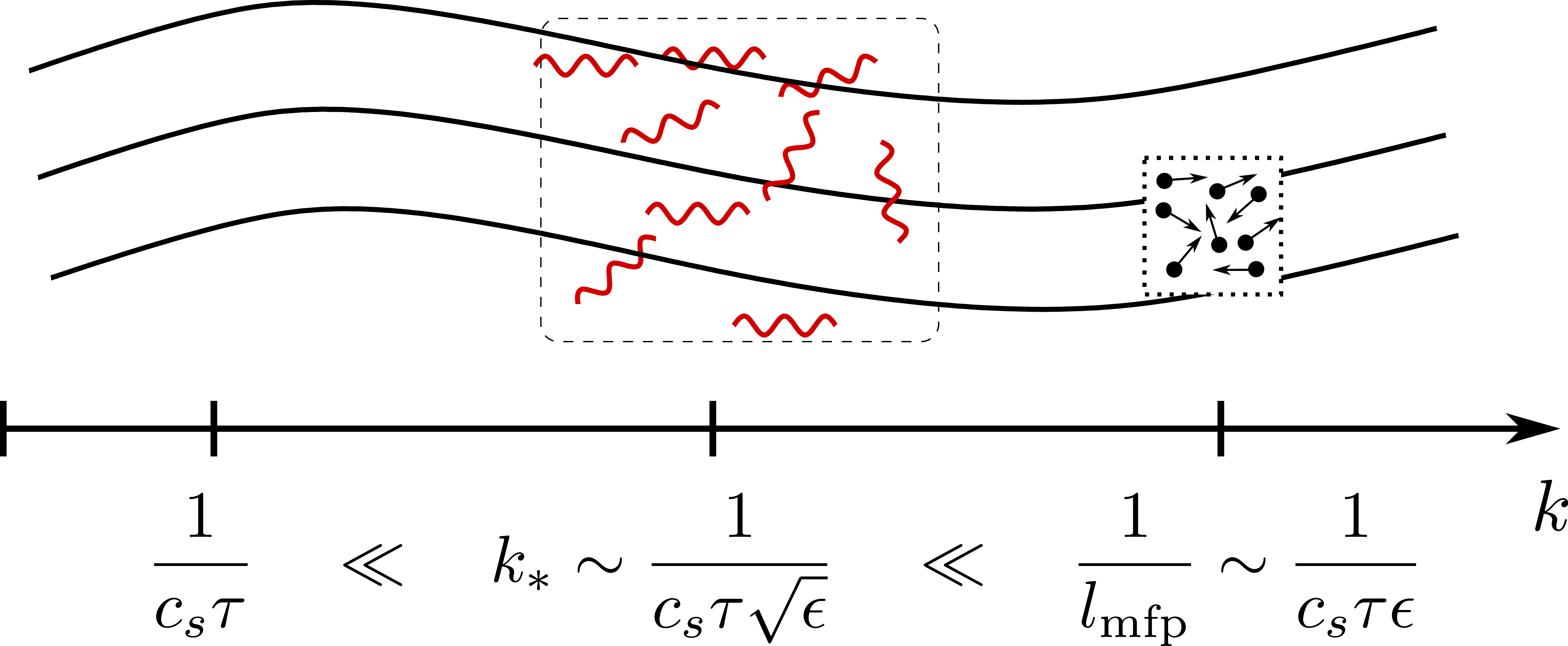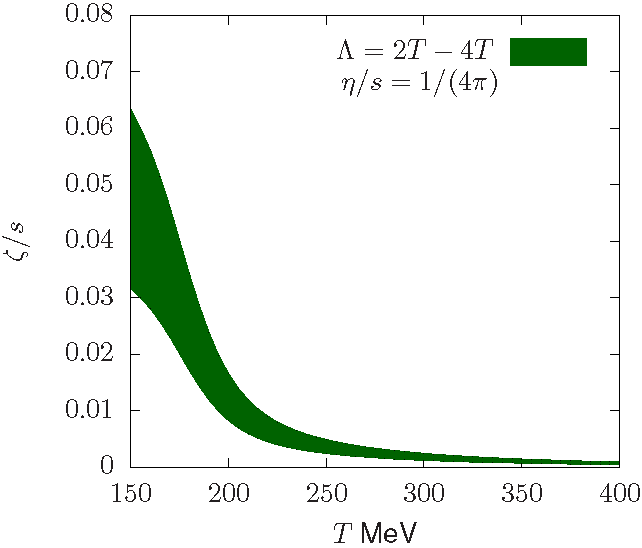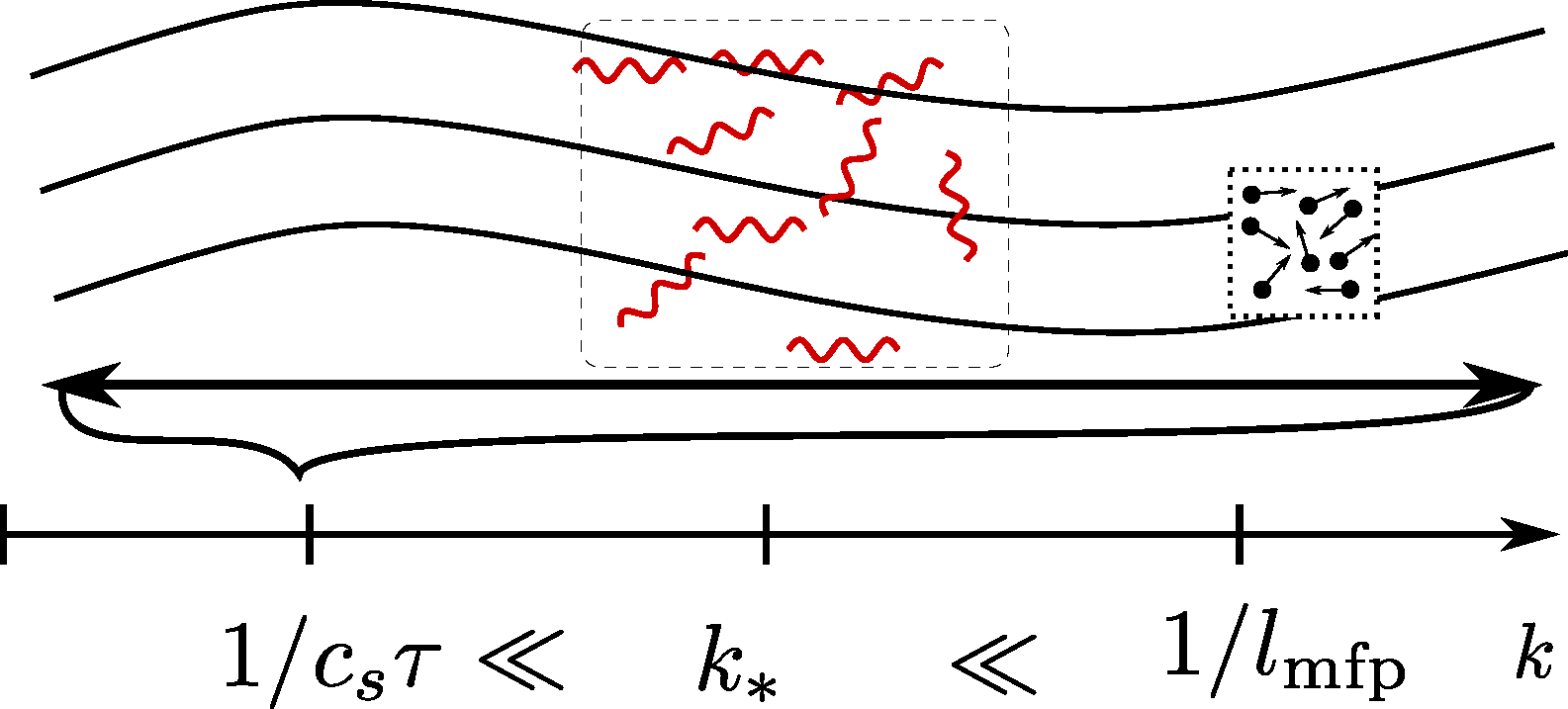Hydro-kinetics of noise

The fluctuation dissipation theorem dictates that any dissipative system exhibits stochastic fluctuations thanks to the microscopic degrees of freedom. The remarkable property of QGP is that it is well described by macroscopic theory of viscous hydrodynamics, despite its microscopic volume. However, thermal fluctuations have been so far neglected in most of heavy-ion model studies, because of difficulty of implementing stochastic noise in hydrodynamic simulations.
A novel approach in describing effect of hydrodynamic fluctuations has been pioneered in our papers on hydro-kinetics, where we derived deterministic evolution equations for the two-point correlation functions of fluid fields, which are equivalent to nonlinear hydrodynamics with noise (Akamatsu et al., 2017; Akamatsu et al., 2018). We used the hydro-kinetic equations to analyse thermal fluctuations for a Bjorken expansion, evaluating the contribution of thermal noise from the earliest moments and at late times.
The approach was generalized to arbitrary background flows, which could be implemented in realistic heavy-ion simulations. Inclusion of such dynamical fluctuations is particularly important for the searches of the critical point in QCD phase diagram, with experimental efforts currently underway at Relativistic Heavy Ion Collider (RHIC) at BNL.

